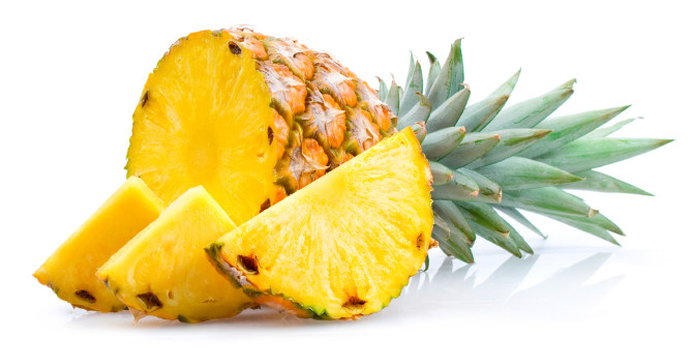When it comes to the popular hunt for delicious foods with nutritional value, the pineapple presents an option that's worth looking at. In many tropical cultures, this sweet fruit is part of a balanced diet. In American cuisine, it's relatively obscure. But how does the pineapple really stack up in terms of nutrition?
Nutrition of the Pineapple
There are several immediate benefits that nutritionists look at for including the pineapple in a diet. For one thing, the pineapple is pretty low in saturated fat and cholesterol. In an era where fatty meats and cheeses rule fast food menus, that's nothing to sneeze at. Additionally, the pineapple is also relatively low in sodium, a pervasive element that has started to pop up in all kinds of foods, including breads and many processed many options, contributing to high blood pressure and other conditions in some consumers.
Beyond all of this, the calorie count for the pineapple actually seems reasonable. According to nutritional calculations, a cup of pineapple chunks has about 80 calories. That's fewer calories than a cup of apple slices, and less than one half the calories of a cup of mashed bananas. This shows that the pineapple is actually not among the highest calorie fruits. However, the downside is that many of the calories in the pineapple come from sugars. In fact, that cup of pineapple has 16 grams of sugar, a pretty large amount. Even natural sugars can contribute to some sugar-related health conditions, and that's one drawback to be aware of when looking at adding pineapple to a diet.
More Nutrition
In addition to the above, the single 1 cup serving of pineapple includes 2 g of dietary fiber and over 100% of the daily recommended intake for Vitamin C, a natural element that contains some particular health benefits.
For some shoppers, it's using the pineapple in recipes that presents the problem. Some people just aren't used to dealing with fresh fruit. Buying pineapples whole makes the job even tougher. You would have to skin the fruit, disposing of all of that rough surface, with juice dripping all over the place. This process can make you want to forget about using the ingredient altogether. However, buying pineapple in chunks is easier, but not quite as satisfying for those who like the idea of eating fresh fruit, not to mention fruit that hasn't been stewing in a sugary broth.
For those who can get past the procedural issues of buying and using pineapple, this fruit can be a good additional to the table, as an alternative to the kinds of processed sugary snacks that don't have any nutritional content to speak of, such as cookies and cakes made with lots of sugar and loaded with fat content. Think about the pineapple as a way to add natural foods to a dessert or a meal.



